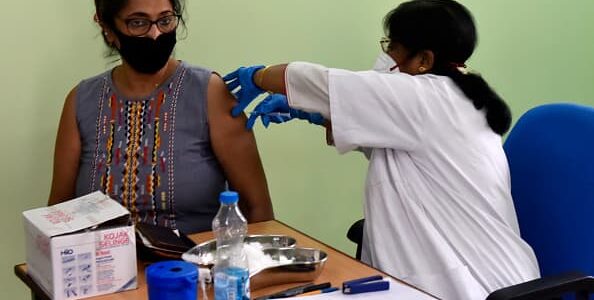
G-7 leaders to pledge 1 billion doses of Covid vaccines to low-income nations
- The G-7 nations (the U.S., U.K., Canada, France, Germany, Italy and Japan) want to end the pandemic next year, according to a statement published by the U.K. government on Thursday.
- The pandemic is front and center of the discussions of the G-7 leaders, who will start a three-day gathering on Friday in Cornwall, in the southwest corner of England.
LONDON — The leaders of the G-7 are expected to pledge a donation of 1 billion coronavirus vaccine doses to poorer nations this weekend as they try to ease concerns over vaccine nationalism.
The "most-advanced" economies of the world — as the G-7 defines itself — have been criticized for not sharing more vaccines with countries that have more limited resources. The United States, for example, legislated that it should only send vaccines abroad after it reached a satisfactory level of vaccination within its own borders. The U.K. and the EU have also received similar criticism.
However, the G-7 nations (the U.S., U.K., Canada, France, Germany, Italy and Japan) want to end the pandemic next year, according to a statement published by the U.K. government on Thursday, and will therefore be stepping up their individual contributions.
The U.K. already said Thursday that it will donate at least 100 million surplus coronavirus vaccine doses within the next year. The United States also said earlier this week that it would be donating 500 million doses of the Pfizer-BioNTech shot to low-income countries.
On Thursday, President of the European Commission Ursula von der Leyen, who will be representing the EU at the G-7, also said: "We do subscribe to the G-7 aim to end the pandemic by 2022 by stepping up the global vaccination."
Sharing vaccines is described by health officials as the only way to fully end the pandemic. This is because for as long as the virus exists, it can mutate and continue to spread all over the world. At the same, measures such as lockdowns and social distancing will likely keep hurting global economic output.
There have been more than 174 million cases of Covid-19 since the pandemic emerged and more than 3.7 million deaths worldwide, according to data from Johns Hopkins University.
The pandemic is front and center of the discussions of the G-7 leaders, who will start a three-day gathering on Friday in Cornwall, in the southwest corner of England.
In this context, the U.S. surprised other leaders last month when supporting the waiving of intellectual property rights for Covid-19 vaccines.
Health experts, human rights groups and international medical charities argue it is critical to waive IP rights to urgently address global vaccine scarcity amid the pandemic and, ultimately, avoid prolonging the health crisis. Vaccine makers, however, say this could disrupt the flow of raw materials, while also leading to lower investments on health research from smaller biotech innovators.
This opinion is also shared by certain EU leaders, notably France's President Emmanuel Macron and German Chancellor Angela Merkel.
Source: Read Full Article